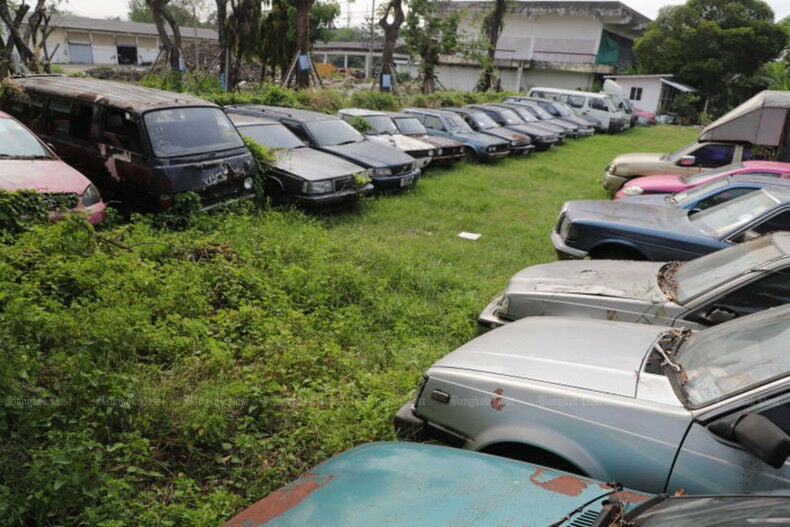City Hall city sweeps streets, leaves residents puzzled: 200 abandoned cars vanish

City Hall successfully wiped over 200 abandoned cars off the streets of Bangkok, leaving residents baffled.
The Bangkok Metropolitan Administration (BMA) disclosed their battle against 1,399 derelict vehicles from 2019 to last year. However, the real jaw-dropper is the 203 abandoned cars that mysteriously disappeared after no owners claimed them.
Bangkok Deputy Governor Chakkraphan Phiewngam took charge on January 2, overseeing the removal of dilapidated vehicles on Sukhothai Soi 1 in the Dusit district. Out of the 1,164 wrecks dealt with, 32 still await their fate, pending removal.
City officials have slapped fines amounting to 60,500 baht on the owners of 33 abandoned vehicles, and an additional 36 vehicles have been auctioned off for a staggering 268,000 baht. Chakkraphan issued a stern warning.
“Abandoned cars will sport notices, and owners must reclaim them within a specified timeframe. Fail to do so, and these vehicles face a destiny at the garbage disposal centre for six months before hitting the auction block.”
To aid this secret sweep, citizens are encouraged to use the Traffy Fondue application, an undercover tool to report abandoned car wrecks in public areas, reported Bangkok Post.
Owners of these left-behind vehicles face fines of up to 5,000 baht under the city’s cleanliness and orderliness laws.
In related news, Yala police warned the public to be on high alert for two vehicles suspected to be primed for a car bomb attack at new year celebration events in the Deep South provinces. Yala Police Station, in a bid to thwart disaster, unveiled images of the potential weaponised vehicles on its Facebook page.
In other news, a deal has been struck between the Federation of Thai Industries (FTI) and global car manufacturers to aid approximately 1,700 local auto parts manufacturers in transitioning from the production of traditional internal combustion engine car parts to those for electric vehicles. Evolving global campaigns for zero-emission vehicles necessitate this shift.
Latest Thailand News
Follow The Thaiger on Google News:


























